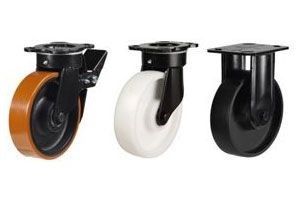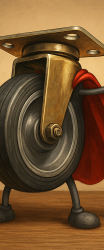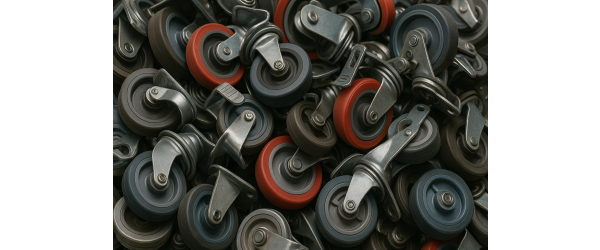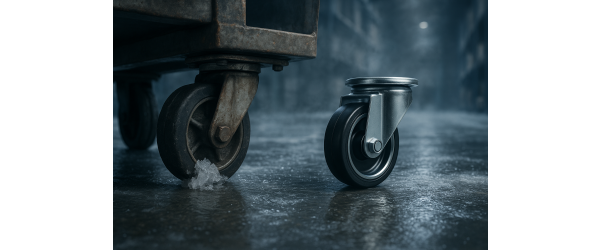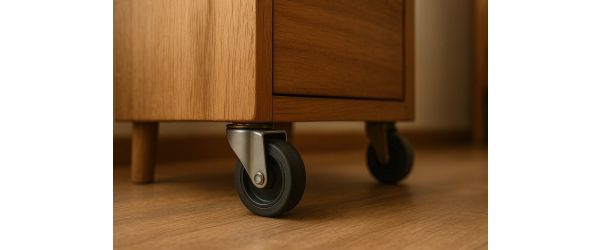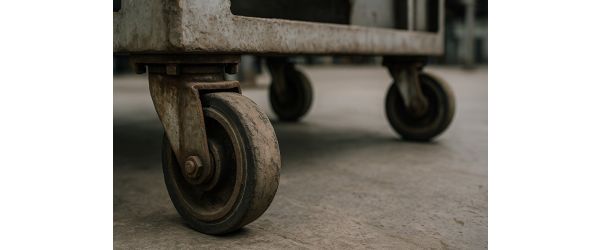When it comes to choosing the right castors for your equipment or applications, you're faced with a crucial decision: should you opt for heavy-duty castors or stick with standard castors? The choice you make can significantly impact the performance, durability, and longevity of your castors. In this blog post, we'll delve into the key differences between heavy-duty castors and standard castors to help you determine which is the right fit for your needs.
Unpacking Heavy-Duty Castors
Heavy-duty castors are engineered to withstand substantial loads and rigorous usage. They are designed to excel in demanding environments where durability and strength are paramount. Here's why heavy-duty castors might be the ideal choice for you:
1. High Load Capacity:
Heavy-duty castors are built to carry exceptionally heavy loads with ease. They are equipped to handle the weight of machinery, equipment, and materials that standard castors may not support. This robust load-bearing capacity ensures stability and reliability in industrial and heavy-duty settings.
2. Enhanced Durability:
In environments where castors are subjected to frequent impact, wear, and abrasion, heavy-duty castors shine. They feature reinforced components, sturdy materials, and advanced construction techniques, ensuring a longer service life and reduced maintenance needs.
3. Smooth Mobility:
Despite their robust build, heavy-duty castors offer smooth and controlled mobility. Their precision engineering allows for easy manoeuvrability, making them suitable for applications where precise positioning and movement are essential.
The Versatility of Standard Castors
Standard castors, on the other hand, are designed for more general applications and moderate load-bearing requirements. While they may not match the sheer strength of heavy-duty castors, they have their own set of advantages:
1. Affordability:
Standard castors are typically more budget-friendly than heavy-duty counterparts. If your applications do not demand heavy loads, investing in standard castors can be a cost-effective choice.
2. Variety of Options:
Standard castors come in a wide range of sizes, materials, and configurations, allowing you to find the perfect fit for your specific needs. This versatility makes them suitable for various applications, from office furniture to light-duty carts.
3. Ease of Replacement:
If a standard castor needs replacement, finding a suitable replacement is usually straightforward due to the availability of standard sizes and configurations. This can simplify maintenance and minimise downtime.
Making the Right Choice
Choosing between heavy-duty castors and standard castors depends on your unique requirements and the demands of your applications. Here are some considerations to help you make an informed decision:
1. Load Requirements:
Assess the weight and load-bearing requirements of your equipment or applications. If you deal with heavy machinery or materials, heavy-duty castors are likely the better choice.
2. Environmental Conditions:
Consider the environment in which the castors will be used. If your applications involve exposure to harsh conditions, heavy-duty castors may offer the durability needed to withstand these challenges.
3. Budget Constraints:
Evaluate your budget and cost considerations. While heavy-duty castors offer exceptional strength, standard castors can be a cost-effective option for applications with lower load requirements.
Conclusion
The choice between heavy-duty castors and standard castors ultimately boils down to your specific needs and priorities. Whether you require the robust load-bearing capacity of heavy-duty castors or the versatility and cost-efficiency of standard castors, selecting the right castors ensures optimal performance and longevity in your applications.
For a comprehensive selection of heavy-duty wheels and castors or standard castors to meet your requirements, visit Castors-Online.co.uk
and make the choice that best suits your needs.
